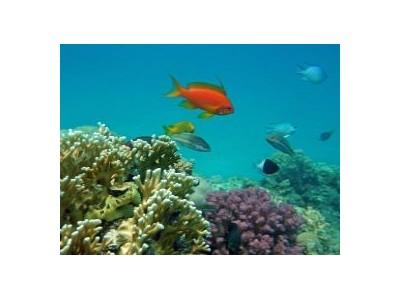Fishing Ban Welcomed After Earthquake Damages Fisheries

NEW ZEALAND - Following the 7.8 magnitude earthquake in the South Island of New Zealand that has damaged the Kaikoura fisheries, a harvesting ban and a $2 million science package are hoped to help businesses return to normal.
“There will be an initial one month closure of the crayfish fishery and three months for all remaining shellfish and seaweed species,” Minister for Primary Industries Nathan Guy announced.
Scientists and stakeholders now have time to better understand the affects to the fisheries from uplifted seafloor and the displacement of an unknown quantity of marine life.
The Paua and NZ Rock Lobster Industry Councils have both welcomed the emergency closure.
Rock lobsters are likely to have escaped the brunt of the quake, being mobile enough to find their way back below the low tide mark.
The Canterbury Marlborough Rock Lobster Industry Association (CRAMAC 5) have an extensive inventory of the fisheries area and is confident that after completing a potting survey there will be enough information to reopen to fishery.
November through to January is a peak fishing period in CRA 5, and if the emergency closure is lifted prior to Christmas there should be sufficient time during the remainder of the season to catch the 70 tonnes of ACE they have been holding back for the lucrative Chinese New Year market.
Unfortunately the initial estimates on the death of paua along the 100km stretch of coastline from the Kaikoura Marine Reserve to Cape Campbell is far less positive.
“The number of paua left stranded are believed to be in the hundreds of thousands,” Paua Industry chairman Storm Stanley said.
“It is still unknown the amount of harm caused to the special habitat where paua larvae and juveniles live.”
But, there will be a reasonable numbers of adult paua surviving further offshore and in parts of the intertidal zone.
Thus, the job now is to assess what is left and how best to rehabilitate the fishery.
The formulation of this plan has already begun, with MPI, Iwi, recreational and commercial fishermen working together.
The co-operation between groups often on opposite sides of the fence should be commended.
It should also provide a template for future collaborations.
The next challenge will be grasping the extent of work needed to get boats back in the water.
Vessels in Kaikoura harbour were initially left high and dry and may need to be relocated unless there is dredging to the harbour to re-open the channel.
Remedial work to launching sites along the coastline is already well underway.
With so much at stake, the response from Government and MPI to this disaster has been first rate.
Related news
 Pangasius: High Anti-dumping Duties, Heightened USDA Inspections,Growing Global Competition
Pangasius: High Anti-dumping Duties, Heightened USDA Inspections,Growing Global Competition GLOBAL - China has now surpassed the European Union to become the world's second biggest importer of Vietnamese Catfish, after the USA, reports Rob Reierson
 UK Fishermen’s Federations Adopt United Stance on Brexit
UK Fishermen’s Federations Adopt United Stance on Brexit The two federations met in Edinburgh on Friday 25 November and agreed the key outcomes they want to achieve from negotiations to leave the EU.
 New Freshwater Fish Parasite Detected in Japan
New Freshwater Fish Parasite Detected in Japan Hiroshima University scientists have identified a new species of parasite infecting an invasive freshwater fish on the subtropical island of Okinawa, Japan